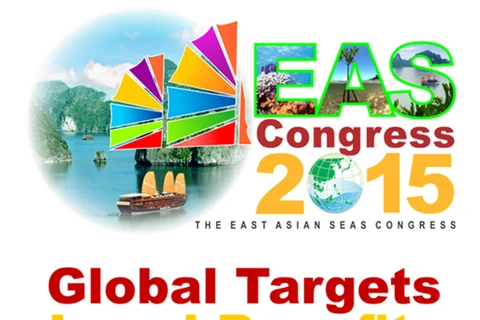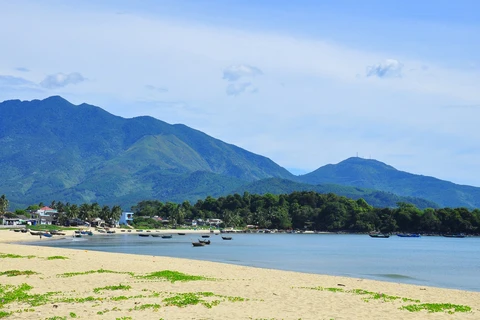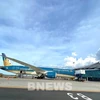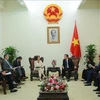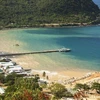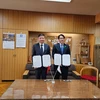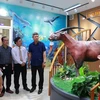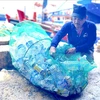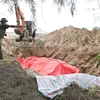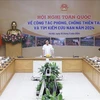Da Nang (VNA) - A series of workshops discussing issues related to managing risks in climate change, integrated coastal management and scaling up investments in the blue economy took place on November 17 as part of the 5th East Asian Seas (EAS) Congress being held in the central city of Da Nang.
Prior to joining the workshops, panelists attended a plenary session themed “A decade of partnerships in sustainable development of the seas of East Asia: Synergies and achievements” under the chair of Vietnamese Vice Minister of Natural Resources and Environment Chu Pham Ngoc Hien.
The session explored the progress and achievements in coastal and ocean governance since the signing of the Putrajaya Declaration adopting the Sustainable Development Strategy for the Seas of East Asia (SDS-SEA) in 2003 and looked into new challenges and international commitments, and their impacts on important coastal and ocean sectors and economies in the region.
In his presentation, Vice Minister Hien stressed that, with rich natural resources, high biodiversity and important marine ecological systems, the East Asian seas have provided goods and services for the socio-economic development of the regional countries.
However, like other areas in the world, natural resources in the East Asian seas, especially fishery resources, are being depleted and environmental pollution is increasing, while the seas are also suffering from many natural hazards, he said, adding that the problems are getting worse due to the impacts of climate change.
According to the Vice Minister, solving all these problems requires an effective ocean governance mechanism. For this reason, the role of the Partnerships in Environmental Management for the Seas of East Asia (PEMSEA) should be promoted as it has strengthened the closer cooperation between the regional countries in settling issues regarding the use and exploitation of marine natural resources, coastal and ocean environment, especially cross-border or regional ocean environment problems.
He highlighted achievements since the implementation of the SDS-SEA, which have helped the regional countries enhance the integrated management of oceans and coasts in a large scale, reinforce cooperation among United Nations bodies, regional governance mechanisms, international non-governmental organisations (NGOs) and donors, while gradually developing the blue economy.
In regards to Vietnam, Vice Minister Hien said, by implementing the SDS-SEA and with the help from international friends and its internal efforts, the country established a system of organisations from the central government to provincial administrations with the mandate of undertaking the integrated and united management of seas and islands and a gradually completed system of policies, laws and regulations for this purposes.
At the later workshop entitled “Managing risks in climate change and disasters in the seas of East Asia”, participants reviewed the progress made, including the challenges, to advance climate change adaptation (CCA) and disaster risk and reduction (DRR) in the seas of East Asia.
The two-day workshop will showcase on-the-ground good practices, working models and innovative solutions and highlighted how an integrated approach has been helping local governments to adapt, prepare and respond to climate change and disaster risks. It will also tackle the need for a strategic framework for CCA/DRR in the EAS region, and how its implementation can be facilitated and scaled up.
At the workshop on “Scaling up integrated coastal management (ICM): Innovations and impacts at local, national and regional levels,” panelists focused discussions on ICM applications at the local level, national and regional levels, and the contributions that ICM has made to improving governance and management of coastal and ocean areas and related resources, as well as sustainable economic growth and social benefits.
As scheduled, during the course of the two-day event, they also consider the transferability of innovations and lessons learned for managing marine and coastal areas and resources at the national and regional levels to other sustainable development priorities and programmes in the EAS region, as well as to other regions of the world.
Meanwhile, a workshop on “Application of knowledge management in scaling up public and private sector investments in a blue economy” reviewed the application and benefits derived from the products and services in various projects.
It then delved into the potential use of such innovations in other projects and by other sectors, and how a regional knowledge management platform can serve to improve access to, and scale up investments in, good practices.-VNA


